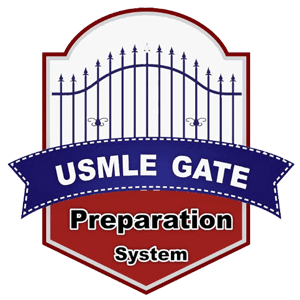Research For USA Pathway

In this post
A Comprehensive Guide to Research Opportunities for the USMLE Pathway
Introduction to Research for the USMLE Pathway
Participating in research is a valuable component of the USMLE pathway, especially for international medical graduates (IMGs) and medical students aiming to enhance their residency applications. Research experience demonstrates a commitment to the scientific foundation of medicine, enhances critical thinking skills, and provides opportunities to contribute to the advancement of medical knowledge.
Importance of Research in the USMLE Pathway
- Enhances Residency Applications: Strengthens CVs and residency applications, showcasing commitment to academic medicine.
- Develops Skills: Cultivates critical thinking, problem-solving, and analytical skills.
- Networking Opportunities: Builds professional relationships with mentors and peers.
- Publication Potential: Increases the likelihood of publications, which are highly regarded in residency applications.
- Insight into U.S. Healthcare: Offers exposure to the U.S. medical research environment and practices.
Types of Research Opportunities
- Clinical Research:
- Involves patient-oriented research, clinical trials, and epidemiological studies.
- Provides direct relevance to patient care and clinical practice.
- Basic Science Research:
- Focuses on fundamental biological processes and mechanisms.
- Involves laboratory work, bench research, and experimental studies.
- Translational Research:
- Bridges the gap between basic science and clinical practice.
- Aims to apply laboratory findings to develop new therapies and medical practices.
- Public Health Research:
- Involves studying health outcomes, disease prevention, and health policy.
- Focuses on population health and public health interventions.
Finding Research Opportunities
1. University and Hospital Programs:
- Many universities and teaching hospitals offer research positions and fellowships for medical students and graduates.
- Examples include Harvard Medical School, Johns Hopkins University, Mayo Clinic, and Cleveland Clinic.
2. Professional Associations:
- Organizations like the American Medical Association (AMA) and the American Association of Medical Colleges (AAMC) provide information on research opportunities.
3. Online Platforms:
- Websites such as ResearchGate, ClinicalTrials.gov, and NIH RePORTER list ongoing research projects and opportunities.
4. Networking:
- Connect with faculty, mentors, and peers who may know of available research positions.
- Attend medical conferences, seminars, and workshops to network with researchers.
5. Medical School Departments:
- Contact departments within medical schools directly to inquire about available research opportunities.
Application Process for Research Positions
- Identify Opportunities:
- Research and list potential research programs and mentors.
- Prepare Application Materials:
- Update your CV/Resume.
- Write a compelling cover letter detailing your interest and relevant experience.
- Obtain letters of recommendation if required.
- Prepare a personal statement highlighting your research interests and goals.
- Submit Applications:
- Follow the application guidelines for each program.
- Submit all required documents by the deadlines.
- Interview:
- Some programs may require an interview.
- Be prepared to discuss your research interests, experience, and goals.
- Acceptance:
- Once accepted, confirm your position and arrange logistics such as housing and transportation if necessary.
Tips for Success in Research
- Be Proactive:
- Take initiative in seeking out research opportunities and reaching out to potential mentors.
- Stay Organized:
- Keep track of application deadlines, required documents, and follow-up communications.
- Engage Fully:
- Participate actively in research activities, attend lab meetings, and contribute to discussions.
- Seek Feedback:
- Regularly seek feedback from mentors to improve your research skills and knowledge.
- Aim for Publication:
- Strive to contribute to publishable research and present your findings at conferences.
- Balance Commitments:
- Ensure you balance research activities with your study schedule and clinical responsibilities.
Conclusion
Engaging in research is a significant component of the USMLE pathway, offering numerous benefits for medical students and graduates. It enhances residency applications, develops essential skills, and provides valuable exposure to the U.S. medical research environment. By actively seeking out and participating in research opportunities, you can strengthen your medical career prospects and contribute meaningfully to the field of medicine.
For more detailed information and guidance on finding research opportunities, explore university websites, professional associations, and online platforms dedicated to medical research.
Feel free to reach out with any questions or for further guidance on securing research opportunities for the USMLE pathway!

